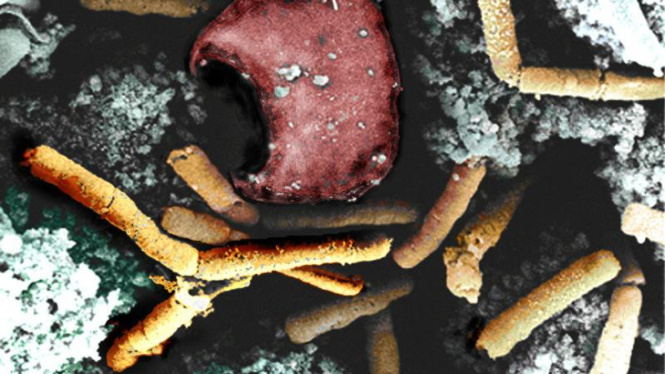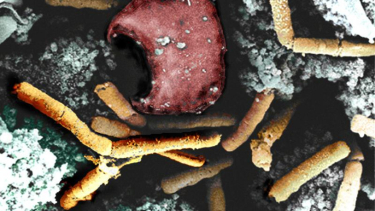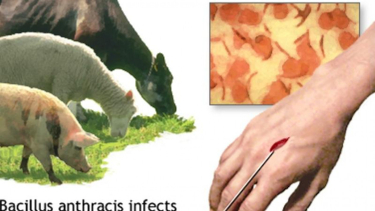What to Know About Anthrax: a Disease from Animals Hit Humans
Yogyakarta – The Ministry of Health reported that three residents of Gunungkidul District, Yogyakarta died caused of anthrax infection. They came from Semanu, Yogyakarta.
Siti Nadia Tarmizi, Head of the Ministry of Health's Bureau of Communication and Public Services, revealed that the three people were part of a total of 93 residents suspected of being infected with anthrax after consuming unhealthy beef or dying from the disease.
As quoted from the Kulon Progo District Agriculture and Food Service website, anthrax is an acute infectious bacterial disease of humans and animals caused by the bacterium Bacillus anthracis.
Virus Anthrax
- US National Library of Medicine
Anthrax means "coal" in Greek, and the term is used because the skin of its victims will turn black. Anthrax most commonly affects wild herbivores and domestic animals.
Anthrax is zoonotic, meaning it can be transmitted from animals to humans or vice versa, but not between people.
Bacillus anthracis, the cause of Anthrax, is a gram-positive, rod-shaped, immobile, spore-forming bacterium.
The vegetative form can thrive inside the body and immediately becomes spores when outside the body when it comes into contact with outside air. These spores will quickly continue to spread through rainwater.
Livestock can become infected with Anthrax if they eat feed or drink water contaminated with the spores or if the spores get on an injured body part.
Infected livestock can infect other livestock through the fluids that come out of their bodies. These fluids then contaminate the surrounding soil and can be a source of future outbreaks.
B. anthracis spores are reported to survive for decades in soil and can only be killed by heating at 100°C for 20 minutes or dry heating at 140°C for 30 minutes.
Anthrax disease in goats is mostly per-acute or acute. In a per-acute event, a previously healthy goat suddenly collapses, suffers from shortness of breath, trembling, convulsions, and then dies within minutes/hours due to bleeding in the brain.
In the acute event, it is characterized by high fever (41.5oC), restlessness, depression, difficulty breathing, rapid but weak heartbeat, mucous membranes of the mouth and eyes become dark red and eventually die.
Sometimes bloody diarrhea and red or bloody urine also occur.
In carcasses of anthrax-affected animals, blood is often seen oozing from orifices such as the mouth, ears, nose and anus. The blood does not coagulate and the spleen is usually enlarged and blackish red in color.
Carcasses of animals suspected of having Anthrax are not recommended to be opened (carcass dissection). Laboratory testing can be done by drawing blood from the ear and making a swab preparation.
Anthrax specimens that have been decomposed or dried for many years have been reported to still give a positive result on the Ascoli test.



























